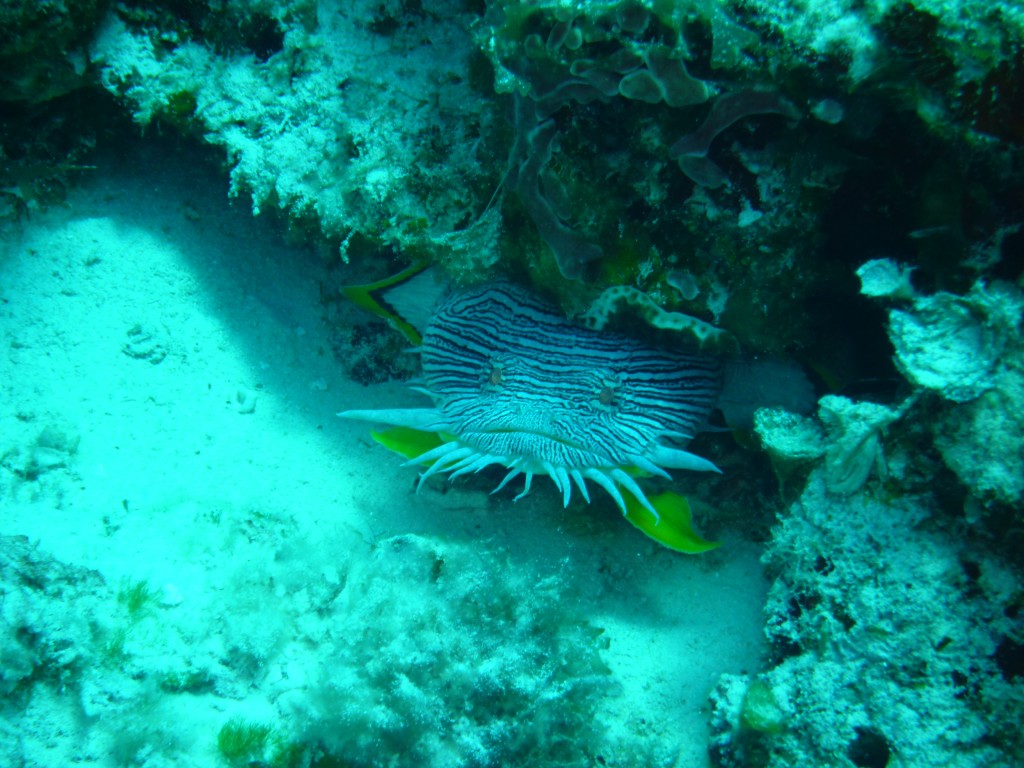The Times Mag had a terrific piece of journalism yesterday that I encourage everyone to read. Written by Charles Siebert, it’s called “Watching Whales Watching Us,” and it details how whale’s deliberate interaction with human beings is forcing scientists to consider the somewhat mind-blowing possibility that whales are trying to communicate with human beings.
Siebert visits Baja California, where Pacific gray whales regularly interact with humans in ways that seem to reflect intelligence—calculation, choice, caution, reciprocity, deliberation. In one powerful anecdote, he describes how one gray whale, a mother, circles the 18-foot boat in which he and others are riding, sizing it up—then departs and returns momentarily with her calf. An introduction of sorts, with mutual benefits for both.
And Siebert details other forms of whale intelligence: how sperm whales have learned to feed by delicately sliding fish off the long-line hooks of Alaskan fishermen, and are teaching this behavior to whales around the world; remarkable subtleties in whale language—dialects, even; communal tool use by humpbacks in their feeding strategies; interspecies cooperation.
Siebert ends on a hopeful note.
I thought of another bit of interspecies cooperation involving humpbacks that I recently read about. A female humpback was spotted in December 2005 east of the Farallon Islands, just off the coast of San Francisco. She was entangled in a web of crab-trap lines, hundreds of yards of nylon rope that had become wrapped around her mouth, torso and tail, the weight of the traps causing her to struggle to stay afloat. A rescue team arrived within a few hours and decided that the only way to save her was to dive in and cut her loose.
For an hour they cut at the lines and rope with curved knives, all the while trying to steer clear of a tail they knew could kill them with one swipe. When the whale was finally freed, the divers said, she swam around them for a time in what appeared to be joyous circles. She then came back and visited with each one of them, nudging them all gently, as if in thanks. The divers said it was the most beautiful experience they ever had. As for the diver who cut free the rope that was entangled in the whale’s mouth, her huge eye was following him the entire time, and he said that he will never be the same.
Here is my own feeling: The most profound change in the human experience in the 21st century will be the gradual realization that we share the planet with other deeply intelligent creatures with whom we can interact, communicate, negotiate, develop relationships, and learn from; animals to whom human beings are not superior or smarter.
This knowledge will undermine our deepest understanding of human identity (which is primarily why we resist it so much) and change the way we consider the past and the future. The change won’t be easy—which is why it will come slowly, because the human brain can only accept such fundamental change over time—but for those who can accept it, it will enrich our lives immensely.
We will come, I believe, to look at the mass slaughter of whales as a holocaust on par with slavery, the Holocaust, Stalin’s purges, or any other destruction of humans by other humans—as one of history’s greatest shames and a permanent stain on humanity. (How will we make it up to them?)
Those of us who believe in God will have to confront the idea that human beings are not His prime creation. That will cause either a great loss of faith in God or a newfound appreciation for His works and a reconceptualization of the idea of heaven.
And in the meantime, we will have to come to terms with the fact that our destruction of the planet has terrible consequences not just for us, but for other creatures who are in many ways our match and in some ways our betters. This will encourage, I hope, a great sense of humility upon us and a spiritual commitment to environmentalism. Moreover, the ability to interact intelligently with other species will add a new level of joy and wonder and learning to our everyday experience. We love communicating with other people; imagine how cool it will be to be able to communicate with other species.
It’s going to get interesting around here.
